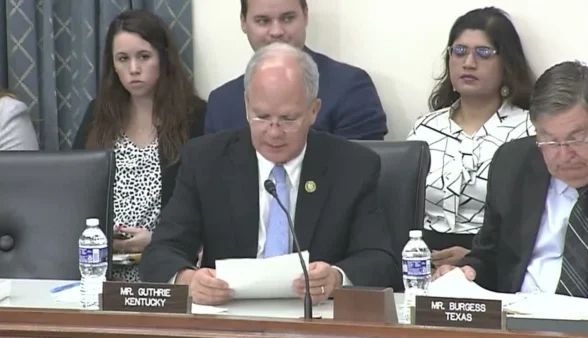In early 2022 as the Omicron coronavirus variant swept the country, only 37% of Americans said they trusted the Center for Disease Control’s health recommendations. Just one year earlier, the Harvard T.H. Chan School of Public Health reported that 52% had trust in the CDC. Health officials noticed the stark decline in only 12 months, prompting speculation as to its cause.
At the same time, regular vaccination rates have been on the decline. For years, 95% of children in kindergarten had met vaccination requirements (MMR and DTAP). But by the 2022-23 school year, that number dipped to 93%.
Between 2020 and 2023, the number of kindergarteners who had vaccine exemptions rose by over a third. Even for flu vaccines, which expanded distribution from 114 million doses (in the U.S.) in the 2009-10 winter to 175 million in the 2019-20 winter, distribution has been flat since. 173 million doses were distributed last winter.
Both the CDC and the World Health Organization (WHO) have promoted lifesaving vaccinations for decades. Suddenly, their gains in vaccination rates have eroded as people lose faith in government health agencies. What has happened?
Last summer President Biden appointed Dr. Mandy Cohen as the new director of the U.S. Centers for Disease Control and Prevention (CDC). Cohen was tasked with the difficult job of restoring public trust in the CDC and she spent much of the last half of 2023 speaking across the nation about overcoming the CDC’s post-pandemic trust problems.
The CDC’s new position represents a mea culpa of sorts, but the admission of their mistakes is limited to their errors in “public messaging.” In other words, the CDC believes that public distrust is merely a result of the CDC’s communication problems, and not a result of actual mistakes in their health recommendations.
“We are already starting a path [of better scientific communication],” Cohen told POLITICO last September.
Mainstream media has clung to the narrative that mere communication is the CDC’s main problem, but have also pointed to other factors the CDC can’t fix. Many have blamed the lack of public trust on the spread of misinformation as well as the politicization of health issues during the pandemic.
“Health professionals seen as agents of red or blue agendas are both villainized and dismissed by half the population,” wrote Lyndon Haviland at the CUNY School of Public Health and Health Policy. Many consider Dr. Anthony Fauci “a divisive figure because a group of lawmakers turned him into a political lightening rod simply for doing his job to try and keep America safe during the pandemic.”
Others disagree with these narrow justifications taking the blame for why the public has lost trust in the CDC, however. Now, as the pandemic grows further and further in the rearview mirror, more dissent has entered the public discourse.
Last June, Chair of the House Subcommittee on Health Brett Guthrie (R-KY) pointed out that the CDC’s recommendations were not just mired in botched communications and mixed messaging. Recommendations during the pandemic, he said, were too frequently not backed by science and were often reflections of “the agency’s preferred policy outcomes or political considerations.”
As examples, Guthrie said the CDC overpromised on the benefits of masking and told the public that vaccination prevented transmission, even “while the agency was receiving reports of breakthrough infections among the vaccinated.” He also cited the prolonged masking of children in schools and school closures when teachers’ unions had more sway on policy than science itself.
The CDC also cherry picked studies to support its existing recommendation. In one instance in September 2021, the CDC latched onto a study that claimed that Arizona schools without mask mandates were 3.5 times more likely to experience COVID outbreaks. The study turned out to be junk.
“Bad science in CDC guidance, when used to justify mandates, destroyed lives,” Guthrie said.
Others point to the CDC’s habit of ignoring some scientific data that conflicted with their recommendations. As one example, the CDC disregarded numerous reports of myocarditis in teens who took the COVID vaccine. The Hill reported that the Epoch Times had obtained an email showing the CDC had even drafted an alert about the side effect but then, for whatever reason, failed to send it out.
If the CDC’s main focus in restoring public trust is to simply improve communications, it may be focused on the wrong thing. The distrust may actually lie in the public perception that the CDC is withholding key scientific data in an attempt to hold the public to the CDC’s own policy agenda, and should instead focus on transparency.
That is the position of Wisconsin Republican Sen. Ron Johnson, who for more than two years has pressed health officials for more information about the adverse side effects of COVID vaccines.
“The COVID pandemic has opened many eyes to the failure and corruption of the global elite and their institutions, including government,” Johnson told The Daily Signal in February. “Unfortunately, many eyes remain closed, and the global elite will use all of their power to keep them closed.”
– The Byway
Editor’s Note: During our research for this article we found that some information regarding CDC errors and mistakes is still very difficult to find. For instance, in a Google search for news articles on the search term “cdc failure vaccine side effects,” the search returned a paltry 65 results (instead of thousands). Of those 65, 23 were links directly to the CDC, and another 19 were of a “fact-checking” nature with information provided by the CDC.
Feature image caption: Representative Brett Guthrie, the Health Subcommittee Chair, makes a statement calling out the CDC’s failures during the COVID pandemic. He points out some reasons public trust in CDC seems to be waning. Courtesy of Energy and Commerce Committee website.

